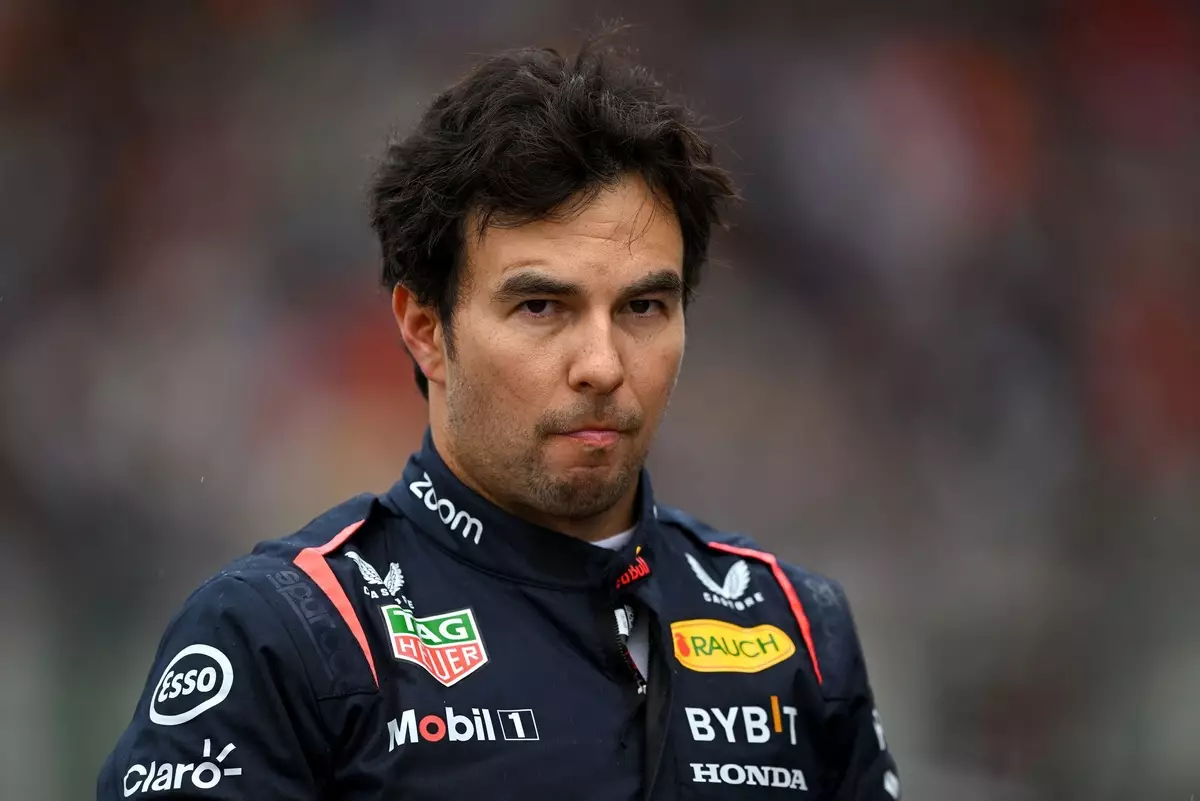The world of Formula 1 is synonymous with high stakes, relentless competition, and, regrettably, a culture wrought with immense pressure. Sergio Perez’s departure from Red Bull Racing exemplifies this toxic brew perfectly—a tale where personal resilience collided with a lack of organizational support. After his dismissal, Perez has taken the opportunity to vocalize the struggles experienced in the second half of the 2024 season. He argues that the team’s actions, or lack thereof, contributed to the very environment that ultimately jeopardized both his position and the team’s performance.
Making it clear that the pressures were partly self-inflicted, Perez expressed dissatisfaction with the team dynamics during his stint. The relentless chatter about his future—despite having a solid two-year contract—left him feeling exposed and unsupported. In an environment as cutthroat as Formula 1, a driver needs the backing of their team, yet Red Bull appeared to neglect this fundamental aspect. Instead of deflecting the negative speculation, they chose silence, allowing a cloud of uncertainty to loom over Perez’s performances and contributing to a spiraling sense of pressure that would inevitably affect results.
Red Bull’s Missed Opportunities
Consider this: in a sport where every millisecond counts, image management and internal culture are just as vital as the engineering prowess that propels the cars. Perez’s revelations indicate that Red Bull failed abysmally in fostering a supportive internal environment. The reality is, they had the opportunity to shield him from external noise, yet did not. Protecting their investment in Perez would have not only bolstered his confidence but potentially staved off underwhelming performances influenced by speculative narratives regarding his future.
The team’s choice to shift narratives towards the likes of Liam Lawson and Yuki Tsunoda—who were unable to replicate Perez’s results—only underscores a fundamental issue in team strategy. In Perez’s own words, Red Bull created the very pressure cooker atmosphere that they ultimately could not contain. As a seasoned driver with six Grand Prix wins, it’s baffling that a team of Red Bull’s stature could overlook the repercussions of destabilizing their own driver’s mindset.
The Aftermath: Regret and Reflection
The subsequent admissions by Red Bull, suggesting that they regret their decision, paint a picture of a team grappling with the consequences of their actions. It indicates a fracture in the strong leadership brand that has propelled Red Bull into greatness. For Perez, this is bittersweet. He acknowledges that he feels vindicated yet distressed by how the situation unfolded. The practical reality of his dismissal is that despite the team’s best intentions to drive for excellence, they may have underestimated the impact of their choices on both him and the overall team morale.
What complicates the narrative further is the seemingly related decline of Red Bull’s performance following key design changes, particularly with the departure of Adrian Newey, a brilliantly astute strategist and engineer. The car he left behind didn’t provide the overwhelming advantage that was once expected. Perez attributes the team’s stagnation in performance partly to this architectural shift, realizing that the loss of such an influential figure can destabilize not just the car’s performance but the entire team’s ethos and internal alignment.
Lessons Learned in a Competitive Landscape
Sergio Perez’s experiences offer vital lessons for both drivers and teams engaged in elite motorsport. First and foremost, it underscores the indisputable need for psychological support in high-stress environments. For all the technological advancements and engineering feats, the human element remains crucial. Ignoring a driver’s mental fortitude can lead to devastating repercussions—on and off the racetrack.
Additionally, Perez’s candidness serves as a warning to organizations about the potentially destructive nature of internal communication—or lack thereof. The sport may be fast-paced and high-octane, but the importance of trust, transparency, and strong team cohesion cannot be overstated. As F1 continues to evolve, adapting these lessons can be the difference between remaining competitive and falling significantly behind. For Perez, the pain of his exit may be a chapter closed, yet the echoes of his experiences can inform a more robust Formula 1 culture moving forward.

